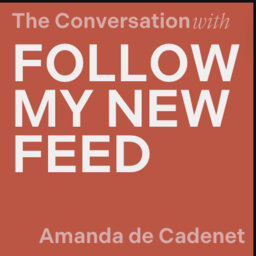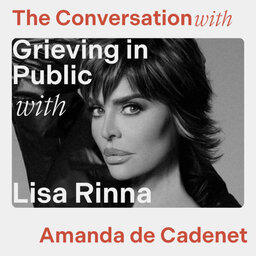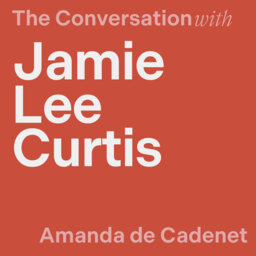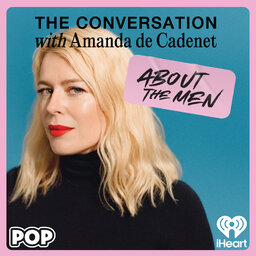The Power of Unplugging with Tiffany Shlain
What does technology amplify in your life, and what does it amputate? In her book, 24/6: The Power of Unplugging One Day a Week, Tiffany Shlain shares how her family unplugged one day a week and how you can achieve digital wellness. Terms like “digital detox” and “internet addiction,” were developed to identify the problem a device can play. In addition, Tiffany explains what her family calls a “technology Shabbat.” So, where do you want to place your time and attention?
IN THIS EPISODE:
- [04:05] Tiffany shares a quote from Marshall McLuhan, a media theorist. “Does technology amplify and what does it amputate?” and she discusses the impact of the tech world in our lives
- [05:15] Taking a technology Shabbat. Tiffany explains what Shabbat is and how it applies to screen time
- [09:26] The history of spending time without technology and a plan to achieve digital wellness in today’s world
- [18:26] Your screen can rob you of creativity and restful “me” time. Structure, organization and rituals are positives choices
- [22:48] Your role as a parent is to set device boundaries
- [26:40] Screen addiction can cause a dopamine rush. Often people use their devices to escape. Internet addiction is real
- [37:08] Inappropriate content is available via the screen, and the average age of children viewing is nine
- [40:28] Disengaging from a screen creates a “me” network; however, the flip side is allowing validation of what you post frame who you are
KEY TAKEAWAYS:
- The default mode network frees your mind to think creatively and recall events of the day or week without the “noise” of a device
- Unfortunately, some parents use the internet as a babysitter, training their child to get validation from posts, etc., and the child doesn’t learn how to feel their disappointment, which we all need to be able to do.
- Screen addiction is so prevalent that treatment centers focus on that particular addiction.
RESOURCES:
24/6: The Power of Unplugging One Day a Week - Book
ABOUT THIS PODCAST:
The Conversation with Amanda de Cadenet is a groundbreaking series of weekly interviews featuring candid conversations with impactful thought leaders. Host Amanda de Cadenet provides a platform for raw and honest discussions on a wide variety of topics, from porn to politics. Visit amandadecadenet.com to learn more and sign up for her newsletter. Follow Amanda on Instagram @amandadecadenet.
QUOTES:
“The concept of one day a week is profound. Many people have read it from different backgrounds, and it’s like yoga and meditation. These ancient ideas were brought to the west and popularized, and people now understand yoga and medication make your life better.” - Tiffany Shlain
“The best thing I’ve ever done as a parent is ‘technology Shabbat’ because the boundary is clear. The idea of Shabbat is a temple in time; we are talking about time and attention. For one day, your home is sacred. The outside world can’t get in.” - Tiffany Shlain
In 1 playlist(s)
The Conversation: About The Men
Amanda de Cadenet is inviting men onto her award winning interview series, The Conversation. After a…Social links
Follow podcast
Recent clips

Follow my Feed ! The Conversation with Amanda de Cadenet
00:25

Lisa Rinna on Navigating Grief, Menopause and being a Cosmo Cover star age 60 .
51:30

As Sick As Your Secrets: Recovery From Addiction with Jamie Lee Curtis
47:02
 The Conversation: About The Men
The Conversation: About The Men